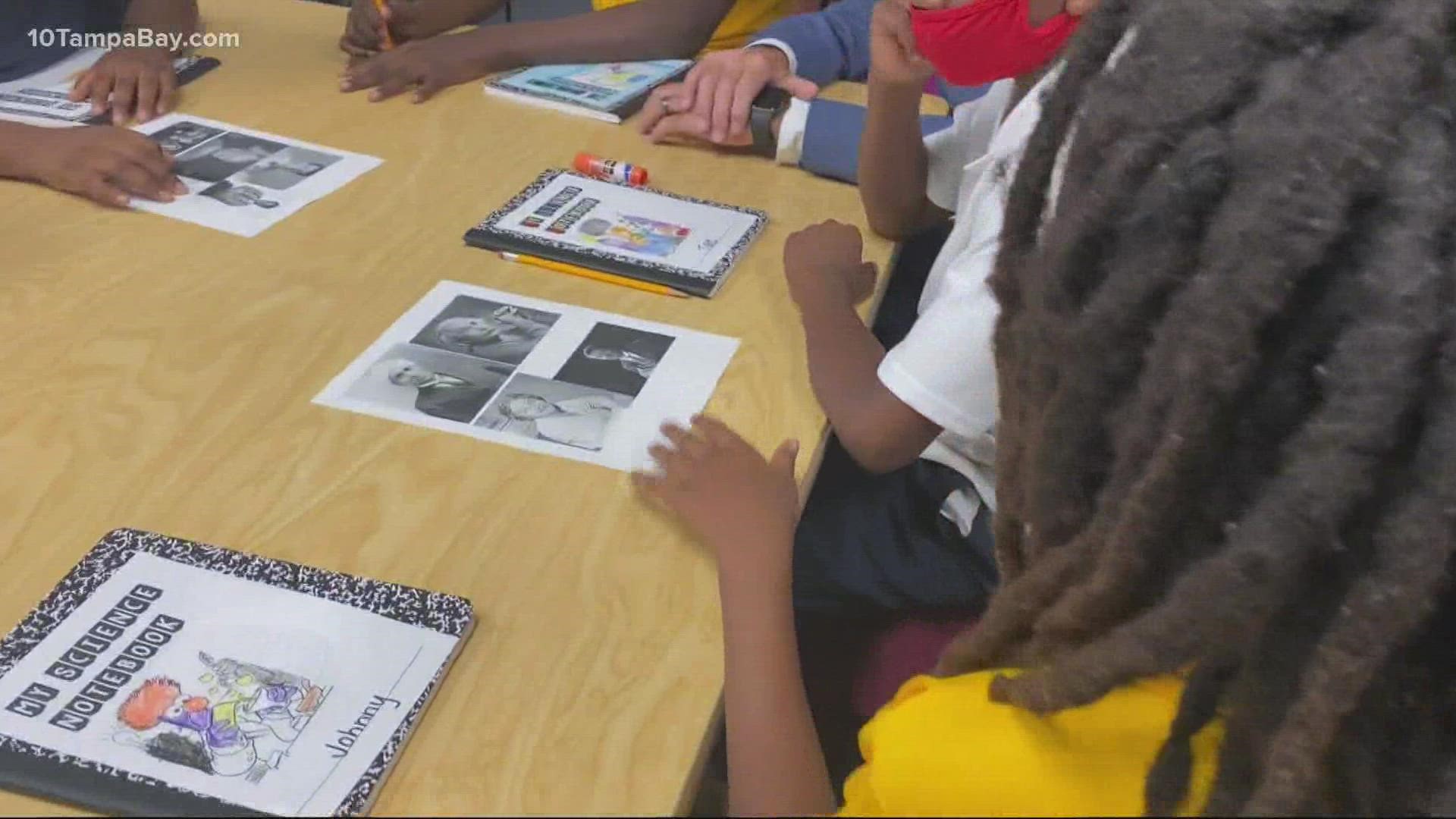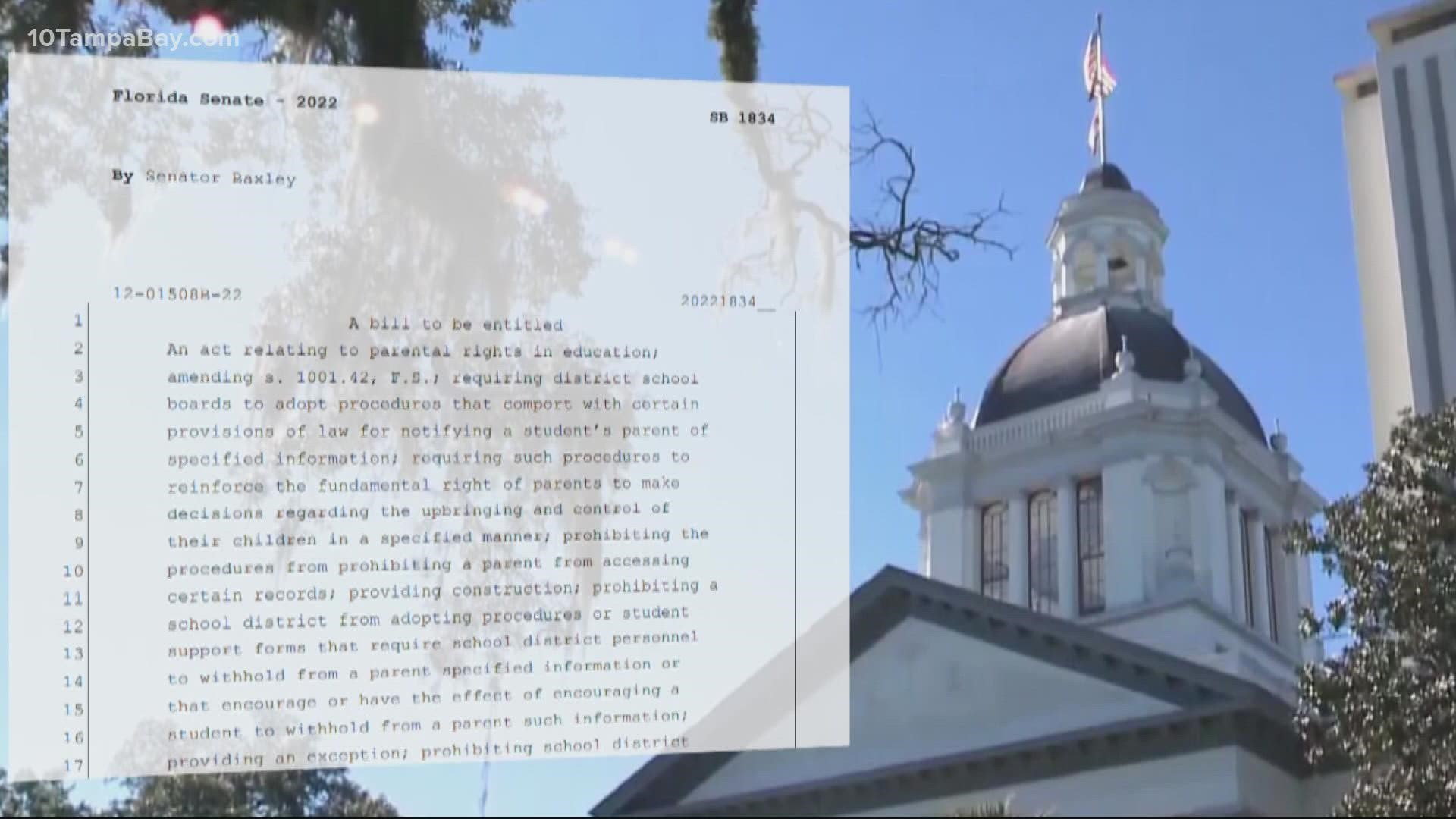FLORIDA, USA — Florida Gov. Ron DeSantis is widely expected to sign the "Parental Rights in Education" bill into law.
Critics dubbed the legislation the "Don't Say Gay" bill. It bans curriculum mentioning sexual orientation and gender identity in kindergarten through third grade, but it also leaves the door open to restrictions in older grades if the instruction is not deemed "age-appropriate."
"...The governor in his statements about this legislation, has emphasized the importance of parental rights and making sure all instruction in our schools is developmentally appropriate," DeSantis' press secretary, Christina Pushaw, told 10 Tampa Bay on Monday in a statement. "For ages 3-9, classroom instruction on sexual topics is not developmentally appropriate, and it’s difficult to understand why anyone would disagree."
The bill is making headlines because of its limitations on sexual orientation-related instruction, but there's more to the legislation.
NOTIFY PARENTS
House Bill 1557 prohibits schools "from discouraging or prohibiting parental notification and involvement in critical decisions affecting a student's mental, emotional, or physical well-being."
In other words, parents must be notified if staff is aware of any major change to their child's health or welfare.
You might be thinking, don't teachers already do that?
State Senator Jeff Brandes (R, St. Petersburg) was also asking that. He's one of two Republicans who voted against the bill.
"This may completely be a solution in search of a problem. For the most part, teachers are following state standards, a vast majority are doing everything they can for kids kindergarten through third grade to help them grow and mature," said Brandes.
RIGHT TO SUE
Another part of this legislation gives parents the right to sue a school if they think procedures infringe on their "fundamental right to make decisions regarding the upbringing and control of their children."
Many Democratic lawmakers opposed to the bill argued that the language was vague and would burden school districts.
Ciara Torres-Spelliscy, a professor at Stetson University College of Law, said this bill could lead to unnecessary lawsuits.
"You're empowering people who may have other ridiculous grievances and allowing them to sue and this will take money out of school districts. This will waste court resources," said Torres-Spelliscy.
EDUCATOR IMPACT
Union leaders, teachers, and legal experts warn that this could push teachers out of the state or pit parents against educators.
"There's this false narrative that's being put out there that somehow it's trying to say that parents and teachers aren't on the same team or the teachers in some ways can't be trusted, and that's just not true," said Andrew Spar, president of the Florida Education Association.
The Florida Education Association found there are 4,000 teacher vacancies in Florida right now with thousands more expected the end of this school year.
"It may not be worth the grief and acrimony and possibility of being sued and that could lead to a brain drain of talent of our public schools," said Torres-Spelliscy.



